Description
ABSTRACT
Abuse of the Nigerian State Powers of Taxation and the Boundaries of Discretion
Dr. Animashaun Oyesola*
The state’s power of taxation provides a critical point of contact between the citizens and the state. The exercise of this power involves a delicate balance, ensuring, on the one hand, that the tax imposed by the legislature is collected in an effective and efficient manner and that taxpayers’ rights and interests are respected. This paper appraises the taxing powers of the state, possible abuses of these powers and the boundaries of discretion of the state officials. The adopted methodology is doctrinal; reliance is placed on reference materials such as the Constitution of the Federal Republic of Nigeria, 1999 and other relevant legislation, learned journal articles, textbooks, case laws, legal encyclopedias and so on. The paper discovers that the state through its officials sometimes abuse its taxing powers and whenever the state does this, it loses the cooperation of the taxpayers. The paper also distinguishes between wrongful and innocent abuse of power and make appropriate recommendations. Instances of abuse of state taxing powers are also drawn from other common law jurisdictions. The paper concludes that there is a need for the state to operate within the ambit of the law especially in matters relating to taxation. The paper equally suggests that certain provisions of the existing tax laws be amended.
INTRODUCTION
The primary function of a government in any society is the maintenance of law and order this is, ensuring that law abiding citizens have quiet enjoyment and possession of their properties and to go about their lawful business unmolested.1 The functions of modern governments also include management of international relations, provision of amenities and creation of a viable economy. The situation is more complicated in the less developed countries like Nigeria, where governments in the quest for rapid development invest in virtually all sectors of the economy including provisions of public goods such as electricity, water, telecommunication, transportation, banks, breweries, bakeries and so on.2
It is pedestrian that the above-mentioned functions require funding. The major sources of funding for states3 are loans, charging for services rendered and taxation.4 Other sources are foreign aids, revenue from state owned corporations, sovereign funds and donation. Each of these sources of funding has its drawbacks. For instance, loans apart from the burden of high interest payment, may have other stringent conditions attached to it resulting in repayment problems and defaults. Foreign aids and voluntary donations are ad-hoc, unreliable and subject to restrictions and conditions; revenue from state owned enterprises and sovereign funds fluctuates and Nigeria’s experience with the former is unpleasant making government at all levels to be dis-investing.
* Ph.D., BL, B.Sc, M.Sc, MBA. Lecturer, Department of Business and Private Law, College of Law, Kwara State University, Malete.
- Akanle O., The Power to Tax and Federalism in Nigeria: Legal and Constitutional Perspectives on the Sources of Government Revenue (1st edn., 1987) 2.
- The Nigeria State has started divesting from most of these ventures with the enactment of the Commercialisation and Privatisation of Public Enterprises Decree. Public Enterprises (Privatisation and Commercialisation) Act Cap P38 Laws of the Federation, 2004
- i.e. Sovereign states and political divisions within a state.
- Akanle, (n 1) 4.

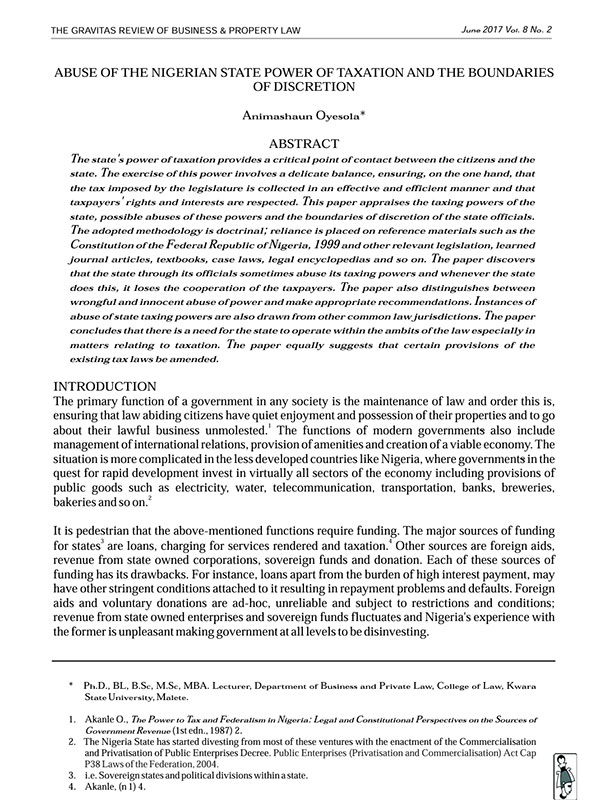
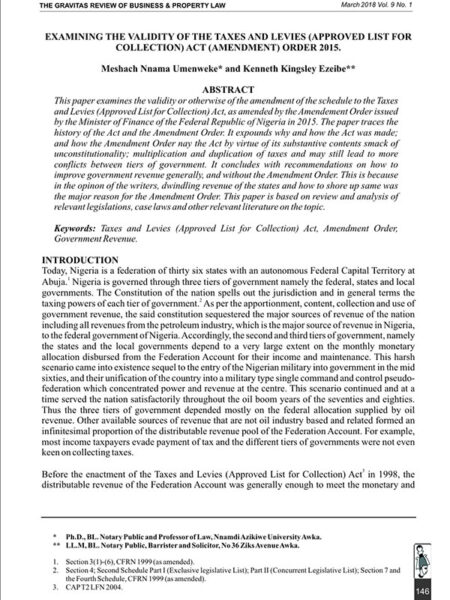
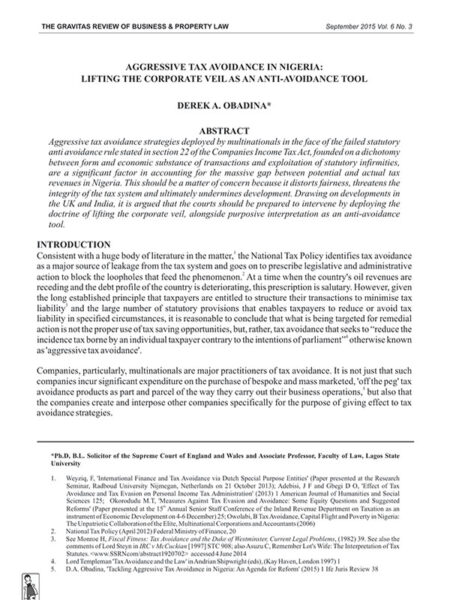
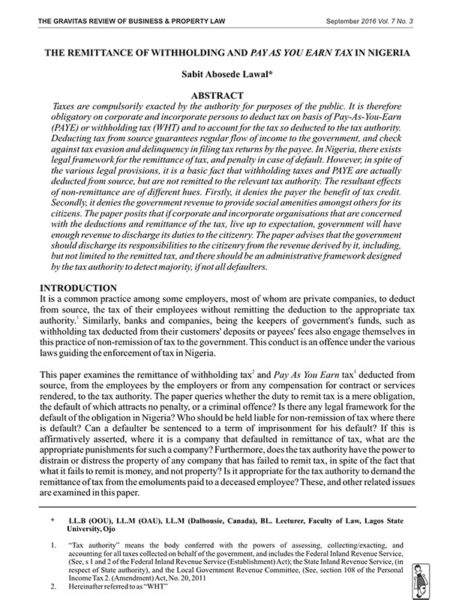
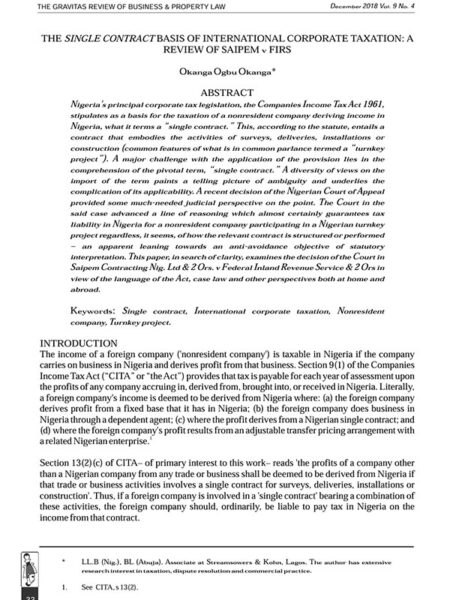


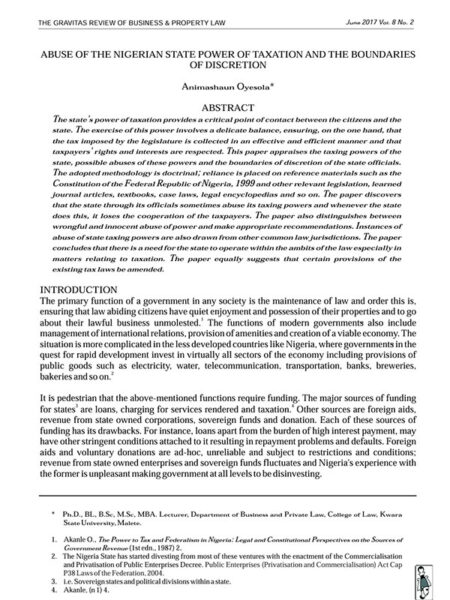
Reviews
There are no reviews yet.